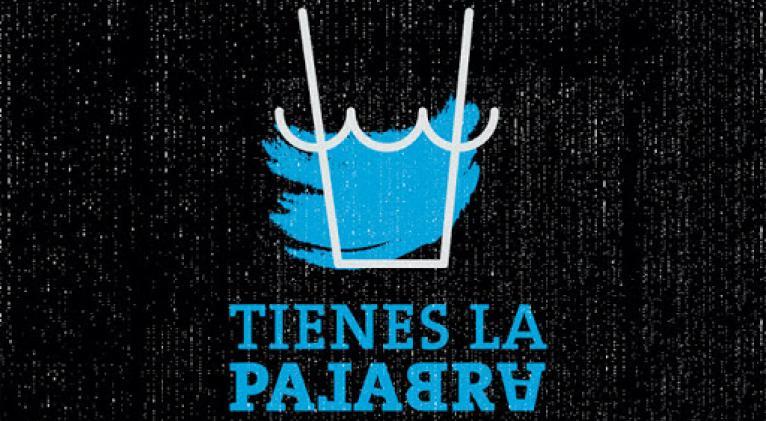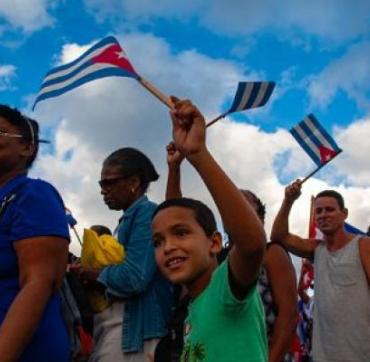EDITORIAL: Have the floor
especiales

The traditional enemies of the Cuban Revolution, unwilling to recognize one single virtue in this process, have wanted to celebrate the 60th anniversary of the renowned speech “Palabras a los Intelectuales” (Words to Intellectuals) delivered by Fidel Castro with the same arguments, niche of the biased and cursory analysis they always do. They take passages of the speech out of context and showcase each of them as a confirmation of their own theories. And that is the fate suffered by the most cited phrase of that speech: “within the Revolution, everything goes; against the Revolution, nothing.”
Where there is a call to unity, a recognition to inclusiveness of a political process, which is also seen as a cultural process, certain “experts” spot shadows of exclusion and censorship. Many of those who have joined that farce have no even read the speech. And others have read it, but ignore (intentionally) the implications of that specific time.
The truth is that the ideas of that founding speech today constitute the roadmap to the consolidation of what it would later become the cultural policy of the Revolution. The essence of that policy are there and they remain fully valid.
No government prior to the Revolutionary government had ever granted culture such a paramount role within the Cuban society. None had ever created an efficient platform for the support to both the artistic and literary activities. No political ruler prior to Fidel Castro had met with the most important artists in Cuba to discuss their doubts, problems, and suggestions…nor had no one ever invited them to be involved in the national efforts to making culture truly democratic.
The Revolution provided people with art and literature, which were fed by that same people. That is why it is said the Revolution itself is essentially a cultural act.
Ignoring the ups and downs in the implementation of that cultural policy would be silly. No one can deny the negative effects of the so-called “Quinquenio Gris” (Five Gray Years), which intellectual Abel Prieto labeled as a treason to those Palabras. But the Revolution put things right again, in a dialectic exercise that would have been impossible to implement without political will, or the commitment and active involvement of the best artists and writers of the nation.
This will not be admitted by those who demonize Fidel’s speech. They do not admit that it was not the imposing monologue they want to present to the world. It was the result of a fruitful dialogue. And that is why it is still referential.
The Revolution still needs its artists. The Revolution still trust serious debates of its own challenges.
At the commemorative ceremony of the 60th anniversary of Palabras a los Intelectuales, the first secretary of the PCC and President of the Republic, Miguel Díaz-Canel Bermúdez, delivered an emotional speech just in the same place where Fidel Castro delivered his speech 60 years ago. And it was a call to artists as well.
Here are some of the questions he raised:
“To what extent are we really aware of the impact of those changes in a peculiar society such as ours, determined to achieve, with the largest possible share of justice, the final emancipation of our citizens?”
What would the role of art and artists be to continue being revolutionaries amid a global context that always seems to be moving in the opposite direction?”
What does a revolutionary artist do, create, leave as a legacy in the swift digital age and the turbulent, confusing trends it imposes, with its tricky algorithms and the neurotic social networks (…)?”
How can we uphold Culture and its vast scheme of institutions, structures, and productions in the present conditions?”
How can we improve the ways and methods so art can be perceived from the schools and the families?”
What do we understand by unity, continuity, sustainability, prosperity today? What do we understand by freedom, sovereignty, anti-imperialism, anti-colonialism, emancipation? How much may intellectuals contribute with the urgent need to provide content and beauty, essence and attraction to all these concepts, free of demagogic speeches?”
In what new ways can we narrate everyday life: sacrifice, resistance, creativity?”
How can we face the cultural war of symbols that precedes, as softening blitz, real invasions?”
These are core questions. Artists, writers, intellectuals…They all have the floor.
Translated by Sergio A. Paneque Díaz / CubaSí Translation Staff














Add new comment